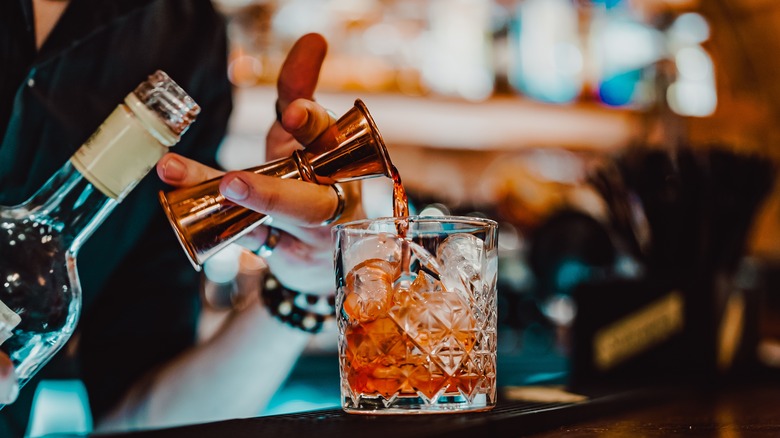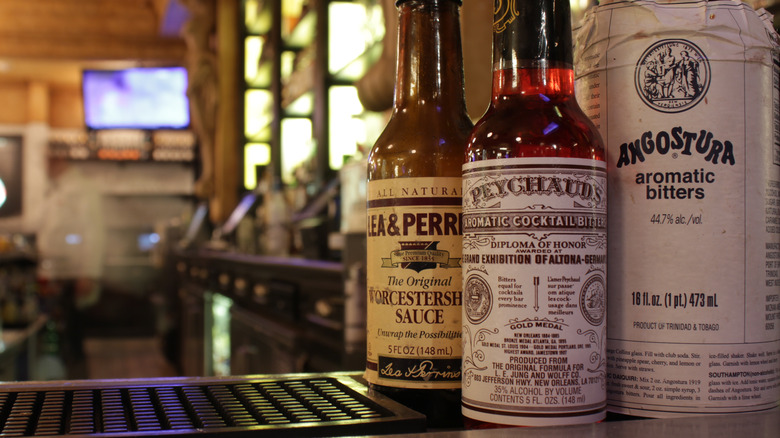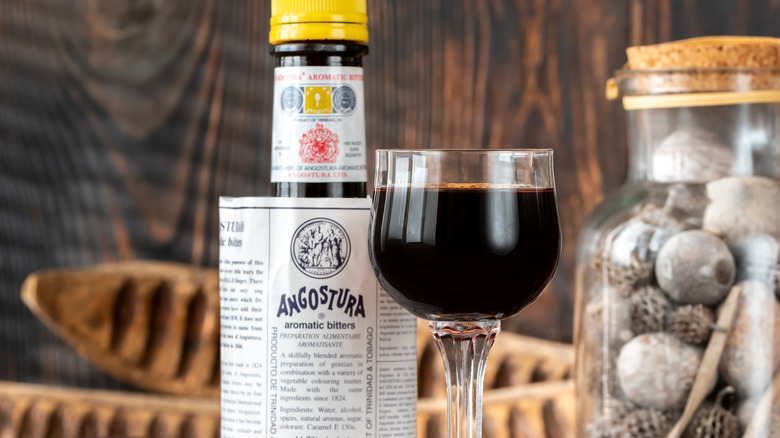The Flavor Difference Between Peychaud's And Angostura Bitters
It's not a stretch to regard bitters as one of the secret weapons bartenders count on when putting together delicious drinks. Bitters are flavored, infused extracts that can amplify cocktail recipes and add depth and complexity to beverages. Both Peychaud's and Angostura bitters are labels most commonly stocked behind bars, and the brands have become essential when preparing libations for thirsty guests.
Though the beginnings of bitters carried more medicinal benefits than upgrades in taste, the aromatic element has since been incorporated into a variety of culinary recipes. Chefs have taken bitters bottles away from bartenders to bring spice to baked goods, deepen soups, and create more flavorful marinades. And though both Peychaud's and Angostura bitters have kept their recipes closely guarded, food professionals and taste testers have managed to identify some of the distinct differences between the two products. We're here to help you recognize some of these flavors, so you're ready to start mixing up your own drinks at home.
Peychaud's cocktail bitters
If we are comparing bottles of Peychaud's and Angostura bitters side by side, it's easy to recognize which is which without needing to look at the labels. First created in 1834 by a pharmacist in New Orleans, Peychaud's bitters are lighter, sweeter, and carry a finish that is a bit more bitter on the tongue than Angostura's brand. You may notice sweet, subtle waves of candied cherries, citrus fruits like orange, and spicy notes of clove as you taste the bright red ingredient. Unlike Angostura bitters, Peychaud's delivers a warming, comforting taste of licorice with hints of anise.
Peychaud's bitters are a must if you're attempting to make a Sazerac cocktail at home. The strong, flavorful drink that New Orleans has named as its own requires three dashes before it is stirred and served. A dash or two of Peychaud's bitters can also brighten Negronis and complement cocktails made with cognac.
Angostura aromatic bitters
Aside from having a label that looks too big for the shape of the bottle, Angostura bitters present a taste that isn't as sweet as Peychaud's and offers a bit more spice per splash. A drop of Angostura is a savory experience, with cinnamon and cloves to waken palates.
To make Manhattan, Old Fashioned, and whisky sour cocktails, Angostura bitters are most commonly added, and since Angostura delivers a more savory flavor profile, it is an easier ingredient to incorporate into food recipes like deviled eggs and roasted vegetable dishes. When assembling cocktails at home, Angostura bitters can be mixed with bourbon, whiskey, gin, or rum and can bring balance to sweeter drinks. Additionally, if you're putting together mocktails for your sober friends, Angostura bitters won't raise the alcohol content of your recipe, but the ingredient can still add that extra punch and complexity you're looking to serve in a drink.


